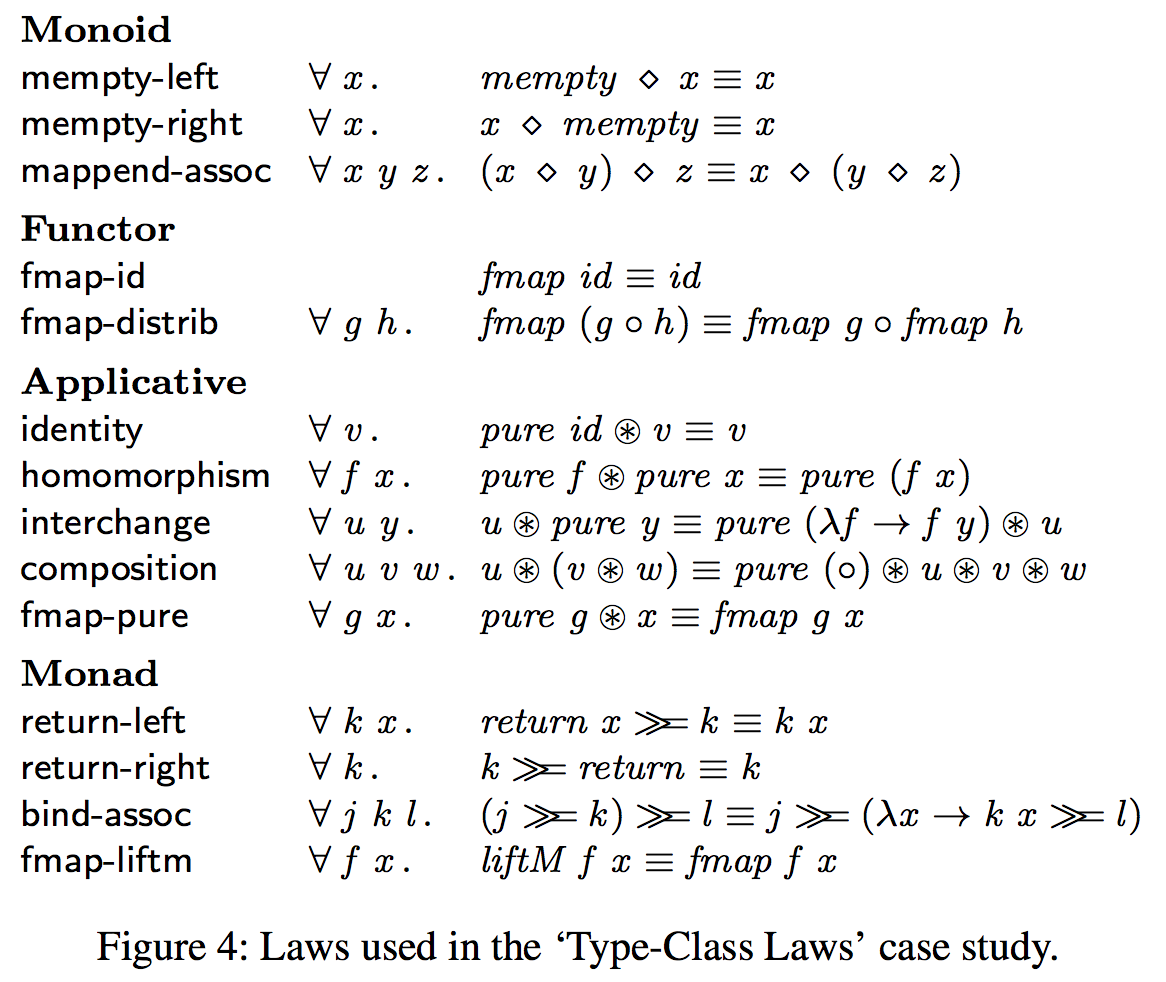Refinement Reflection:
or, how to turn Haskell into a Theorem Prover
Niki Vazou
(UC San Diego)
Simple Refinement Types
Refinement Types = Types + Predicates
Example: Integers equal to 0
Refinement types via special comments {-@ ... @-}
Example: Natural Numbers
Exercise: Positive Integers
Q: First, can you fix Pos so poss is rejected?
Q: Next, can you modify poss so it is accepted?
Type Checking
{-@ type Pos = {v:Int | 0 < v} @-}
{-@ poss :: [Pos] @-}
poss = [1, 2, 3]
Type Checking Via Implication Checking.
v = 1 => 0 < v
v = 2 => 0 < v
v = 3 => 0 < v
SMTs to Automate Type Checking
{-@ type Pos = {v:Int | 0 < v} @-}
Refinements Drawn from Decidable logics.
For automatic, decidable (and thus predictable) SMT type checking.
Refinement Reflection
Goal: Arbitrary (terminating) Haskell expressions into refinements, ...
... while preserving decidable type checking.
Theorems about Haskell functions
A. Farmer et al: Reasoning with the HERMIT

Theorems about Haskell functions
Can we express the above theorems in Liquid Haskell?
- Express & Prove Theorems in Haskell ...
- ... for Haskell functions.
Types As Theorems
Liquid Types express theorems, and
Haskell functions express proofs.
Make the theorems pretty!
ProofCombinators comes with Liquid Haskell and allows for pretty proofs!
Make the theorems even prettier!
ProofCombinators comes with Liquid Haskell and allows for pretty proofs!
Use more SMT knowledge
ProofCombinators comes with Liquid Haskell and allows for pretty proofs!
Theorems about Haskell functions
Can we express them in Liquid Haskell?
- Express & Prove Theorems in Haskell...
- ... for Haskell functions.
Refinement Reflection
Reflect terminating fib in the logic.
Now fib can live in the Liquid Types!
fib is an uninterpreted function
For which logic only knows the congruence axiom...
... and nothing else
Reflection at Result Type
The type of fib connects logic & Haskell implementation
fib :: i:Nat
-> {v:Nat | v == fib i
&& v == if i == 0 then 0 else
if i == 1 then 1 else
fib (i-1) + fib (i-2)
}
Calling fib i reveals its implementation into the logic!
Reflection at Result Type
Q: Can you prove that fib 2 == 1?
Structuring Proofs
Using combinators from ProofCombinators!
Reusing Proofs: The because operator
Using combinators from ProofCombinators!
Paper & Pencil style Proofs
fib is increasing
Another Paper & Pencil like Proof
Can you fix the prove thatfib is monotonic? Note: Totality checker should be on for valid proofs
Generalizing monotonicity proof
Increasing implies monotonic in general!
Theorem Application
fib is monotonic!
Application
Case Study: MapReduce: Program Properties that matter!